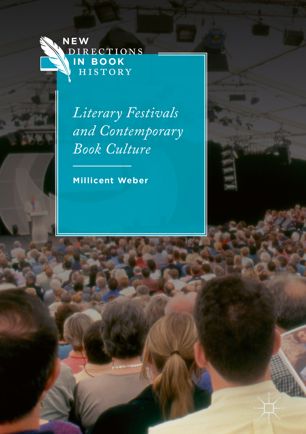

Most ebook files are in PDF format, so you can easily read them using various software such as Foxit Reader or directly on the Google Chrome browser.
Some ebook files are released by publishers in other formats such as .awz, .mobi, .epub, .fb2, etc. You may need to install specific software to read these formats on mobile/PC, such as Calibre.
Please read the tutorial at this link: https://ebookbell.com/faq
We offer FREE conversion to the popular formats you request; however, this may take some time. Therefore, right after payment, please email us, and we will try to provide the service as quickly as possible.
For some exceptional file formats or broken links (if any), please refrain from opening any disputes. Instead, email us first, and we will try to assist within a maximum of 6 hours.
EbookBell Team

5.0
108 reviewsThere has been a proliferation of literary festivals in recent decades, with more than 450 held annually in the UK and Australia alone. These festivals operate as tastemakers shaping cultural consumption; as educational and policy projects; as instantiations, representations, and celebrations of literary communities; and as cultural products in their own right. As such they strongly influence how literary culture is produced, circulates and is experienced by readers in the twenty-first century. This book explores how audiences engage with literary festivals, and analyses these festivals’ relationship to local and digital literary communities, to the creative industries focus of contemporary cultural policy, and to the broader literary field. The relationship between literary festivals and these configuring forces is illustrated with in-depth case studies of the Edinburgh International Book Festival, the Port Eliot Festival, the Melbourne Writers Festival, the Emerging Writers’ Festival, and the Clunes Booktown Festival. Building on interviews with audiences and staff, contextualised by a large-scale online survey of literary festival audiences from around the world, this book investigates these festivals’ social, cultural, commercial, and political operation. In doing so, this book critically orients scholarly investigation of literary festivals with respect to the complex and contested terrain of contemporary book culture.